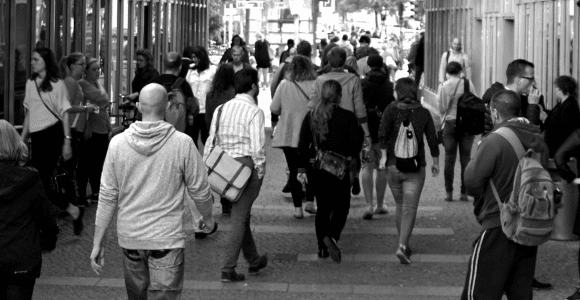
This stands in contrast with economic and political soundbites today. Many in our American capitalist culture today expect the poor to pull themselves up by their own bootstraps in a system stacked against them. We live in a culture of independence, isolation, and self-sufficiency that ignores the reality that whether we like it or not, we are all connected.
Welcome Readers! Please subscribe to Social Jesus Here.
(Read this series from its beginning here.)
We are all dependent on one another for our survival. We are in this together. Social salvation means that if we are to be saved, no one is saved until everyone is saved. As King said, injustice anywhere is a threat to justice everywhere. What affects one, thought it affects others differently, affects us all because we are a part of each other. We are connected to each other. And one of the central tenets of the Jesus of the gospels is to love our neighbors as ourselves.
Jesus wasn’t sending these disciples out as self-sufficient workers, but as disciples instructed to completely lean into our dependence on one another and make this their intentional practice.
Not all followers of Jesus followed this instruction, however. The apostle Paul worked.
“Am I not free? Am I not an apostle? Have I not seen Jesus our Lord? Are you not the result of my work in the Lord? Even though I may not be an apostle to others, surely I am to you! For you are the seal of my apostleship in the Lord. This is my defense to those who sit in judgment on me. Don’t we have the right to food and drink? Don’t we have the right to take a believing wife along with us, as do the other apostles and the Lord’s brothers and Cephas? Or is it only I and Barnabas who lack the right to not work for a living? . . . If others have this right of support from you, shouldn’t we have it all the more? But we did not use this right. On the contrary, we put up with anything rather than hinder the gospel of Christ.” (1Corinthians 9.1-6, 12)
For whatever reason, Paul rejected dependence on those he served and choose a path of providing for himself—a practice of self-sufficient independence. But from this passage in Corinthians, we learn that he was the outlier here. Even in the Didache we see that Jesus’ original instruction was so practiced by the majority that some guidelines had to be added as a result of Jesus’ dependence instruction being abused:
“Let every apostle who comes to you be received as the Lord. But he shall not remain more than one day; or two days, if there’s a need. But if he remains three days, he is a false prophet. And when the apostle goes away, let him take nothing but bread until he lodges. If he asks for money, he is a false prophet.” (Didache: The Lord’s Teaching Through the Twelve Apostles to the Nations, Chapter 11)
For Jesus followers today, this holds specific meaning for our justice work. We’ll unpack this next.
(Read Part 3)













